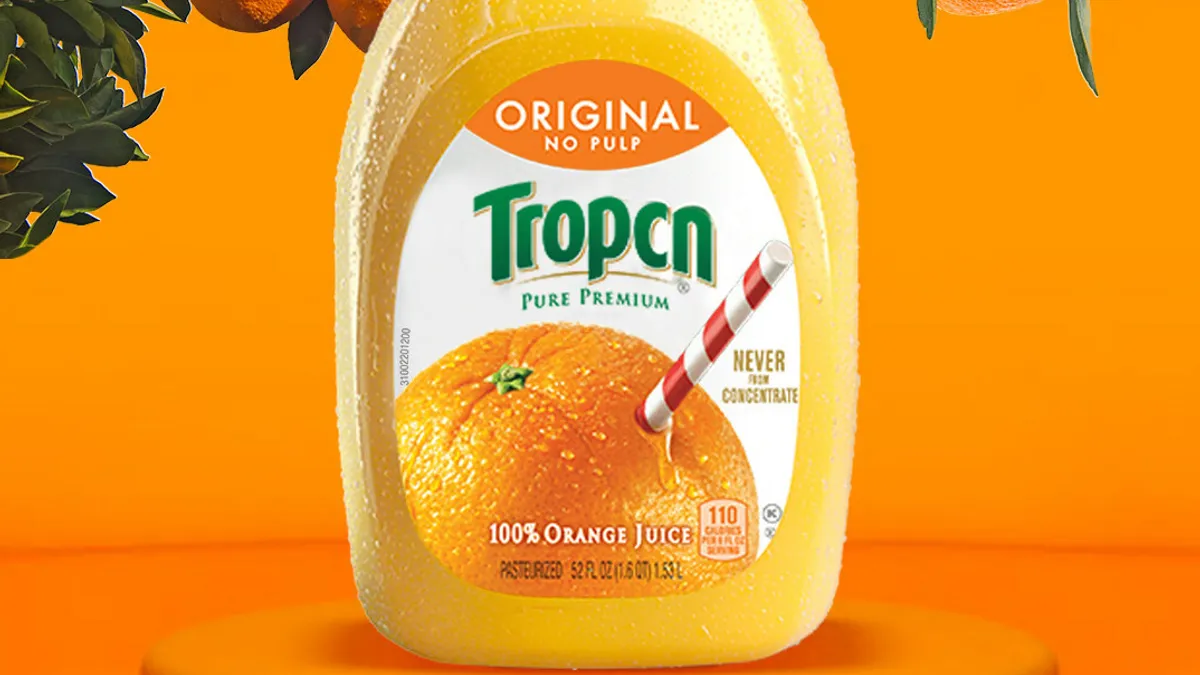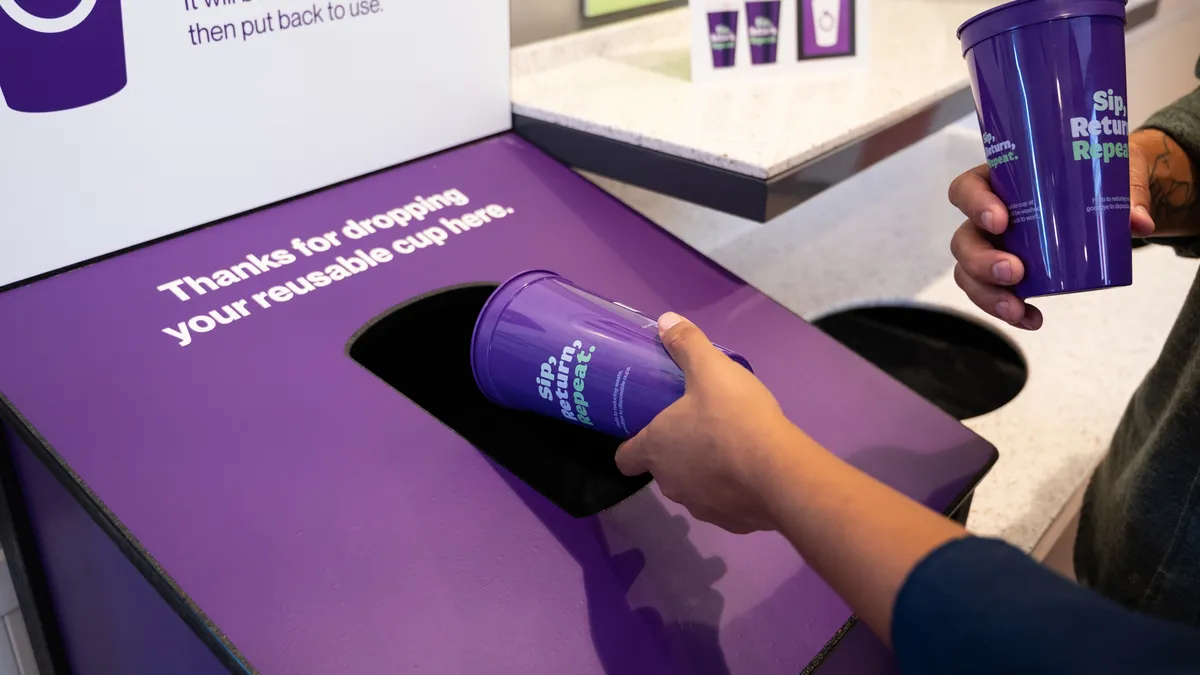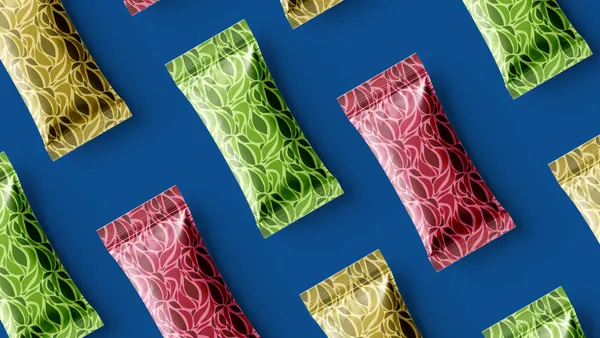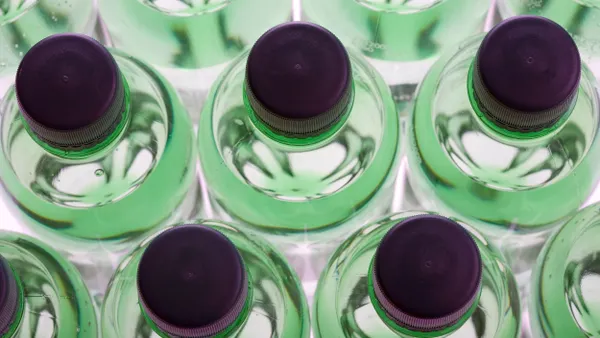Companies constantly innovate with technology and redesign their packaging to get better performance, improve marketability and enhance sustainability. Here’s a look at four recent product launches or redesigns on Packaging Dive’s radar.
Adios, artificial
Tropicana is launching limited-edition packaging that removes the letters “A” and “I” from its name, highlighting that there’s nothing artificial in its orange juice.
The company said in a news release this week that artificial intelligence developments seem to emerge weekly. “Each new AI advancement seemingly brings us closer to the artificial world and further from the natural. Consumer intrigue, and even concern, is high,” it said. Thus, the company is highlighting its “natural” product in bottles branded as “Tropcn,” without “A” and “I” in the name.
The limited-edition Tropcn bottles will be “hidden” in Kroger grocery stores nationwide. They’ll contain codes that consumers can scan to enter to win prizes.
Tub transformation
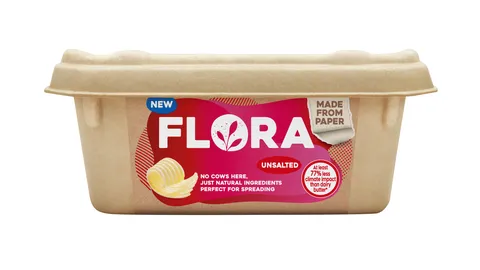
Upfield, a plant-based food company headquartered in Amsterdam, launched a paper-based, plastic-free tub for its plant butters and spreads that it says is recyclable. The waterproof, oil-proof tubs are made from compressed wet paper fibers and do not contain a plastic liner. The company aims to replace 2 billion plastic tubs by 2030, which it says avoids the equivalent of 25,000 tons of plastic waste annually.
“We will continue pushing boundaries through further innovation to adapt for compostability, develop new sizes and formats, and refine towards the optimal solution,” Karina Cerdeira, head of packaging for Upfield, said in a news release.
Upfield says that it worked for four years on R&D to create this tub, in partnership with Footprint, MCC and Pagès Group.
PCR pouch
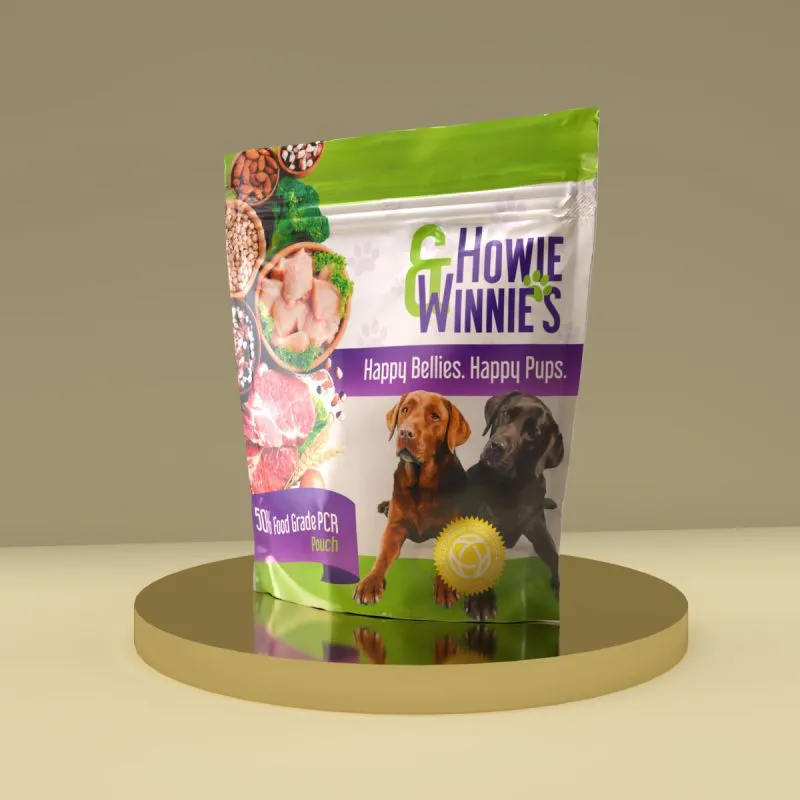
The API Group and subsidiary Accredo Packaging are launching a more sustainable child-resistant flexible stand-up pouch in collaboration with the Fresh-Lock team at Presto Products, a Reynolds Consumer Products Business.
The pouch uses Accredo’s recycled content plastic films. It is resealable with Fresh-Lock’s slider technology and is suitable for food applications, according to the partners. They say this is the first such pouch to contain more than 50% postconsumer recycled material fit for food packaging, with the track for the zipper closure containing at least 25% PCR. The closure is “recyclable,” they said in a news release.
“The PCR component is critical if true circularity in packaging is going to work,” Todd Meussling, Fresh-Lock senior manager of market development, said in the release.
Cementing change
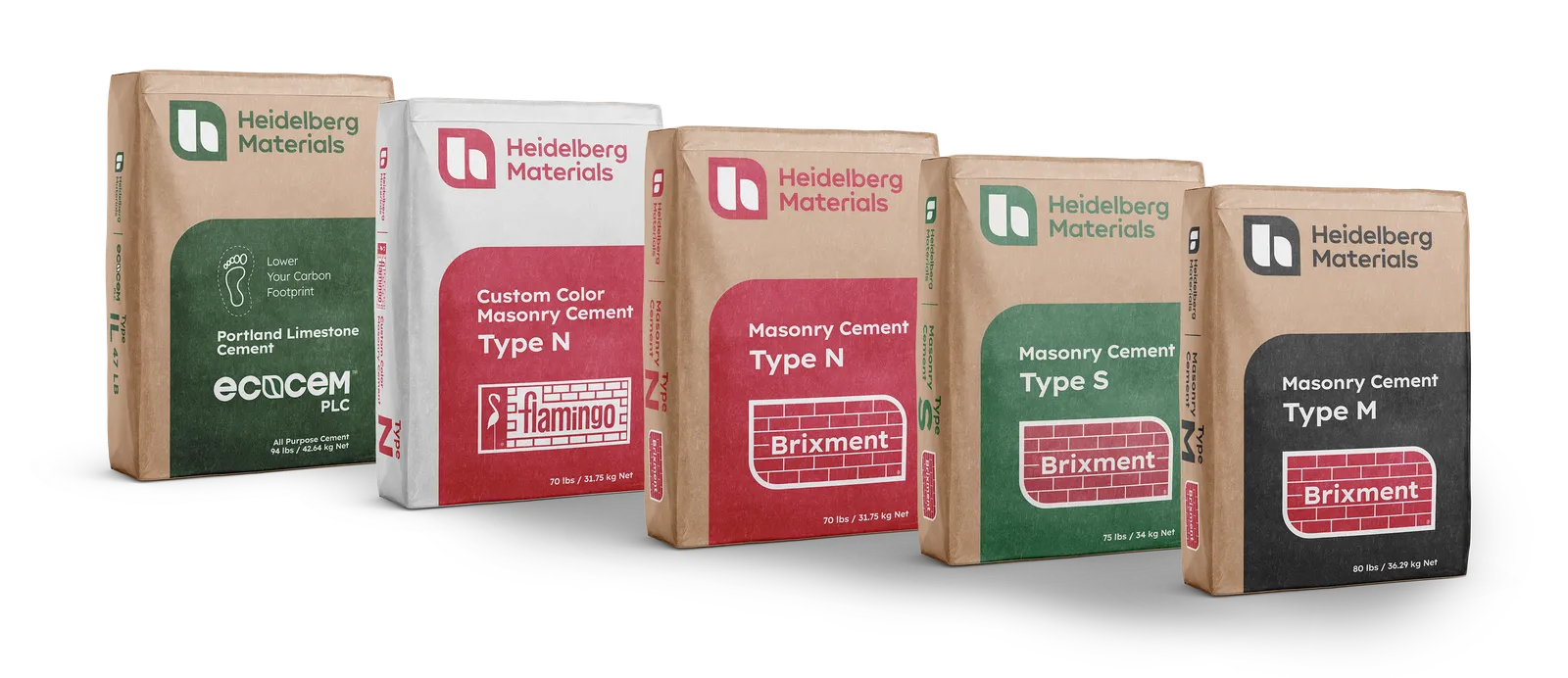
Building materials manufacturer Heidelberg Materials is working on redesigned bags for its packaged cement products, in light of the company’s rebrand and new logo that launched last year. The new bag designs for multiple cement products “reflect Heidelberg Materials’ commitment to environmental sustainability, long-term growth and the strength and performance of its products,” the company said in a news release. The new packaging will be distributed over the course of this year.



